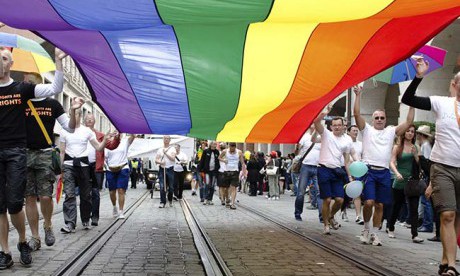Ireland, once dubbed “the most Catholic country in the world” by the future Pope Paul VI, has become the first country in the world to adopt same-sex marriage by means of a popular vote.
For months, opinion polls had been consistent is showing huge levels of support for the constitutional amendment to re-define marriage.
On the day, 62 percent of people voted “yes” for same-sex marriage. It was not the absolute landslide pundits had predicted, but it was an emphatic rejection of the traditional understanding of marriage as between one man and one woman.
David Quinn, director of the Iona Institute and de facto leader of the “no” campaign, was magnanimous, conceding defeat just over an hour after the counting of votes began and the pattern was clear.
Archbishop of Dublin Diarmuid Martin described the result as a “social revolution.”
“We [the Church] have to stop and have a reality check, not move into denial of the realities,” Archbishop Martin said. “We won’t begin again with a sense of renewal, with a sense of denial.”
The archbishop—a former Vatican diplomat who has headed Ireland’s largest diocese for more than a decade—had been criticized during the campaign by some for being too timid in presenting the Church’s teaching on marriage. In the final days, he did take to the airwaves to make a plea for a “no” vote. However, he angered some “no” campaigners for refusing to say Catholics ought to vote “no.”
The bishop of Elphin, Kevin Doran, was among the most vocal opponents of the redefinition of marriage in the Irish hierarchy. He led a robust campaign and frequently engaged in media debates in an attempt to have the proposal defeated.
Responding to the result, he said: “The outcome of the marriage referendum is clear and decisive.”
Bishop Doran got to the heart of why the “yes” campaign proved so convincing in the end. “It seems that many people voted ‘yes’ as a way of showing their acceptance and their love for friends and family members who are gay,” he said. Continue reading
Sources
